Eurobike 2010: Zipp launches faster 808 Firecrest
New aluminum Service Course component range
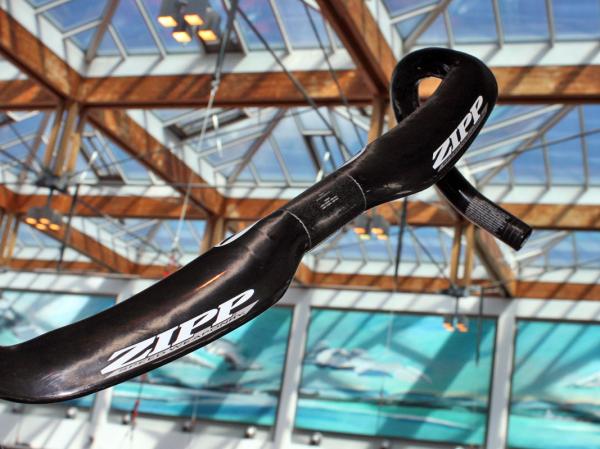
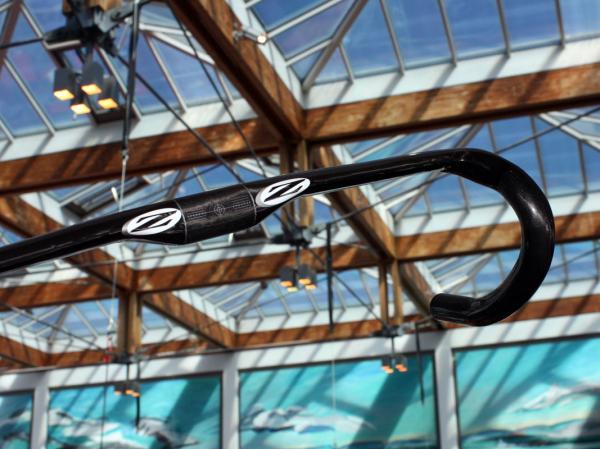
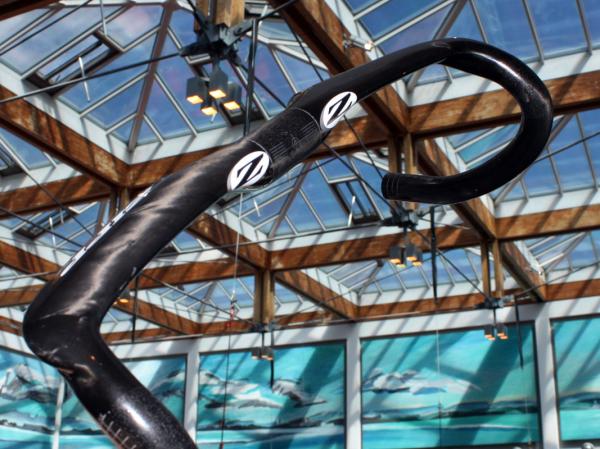
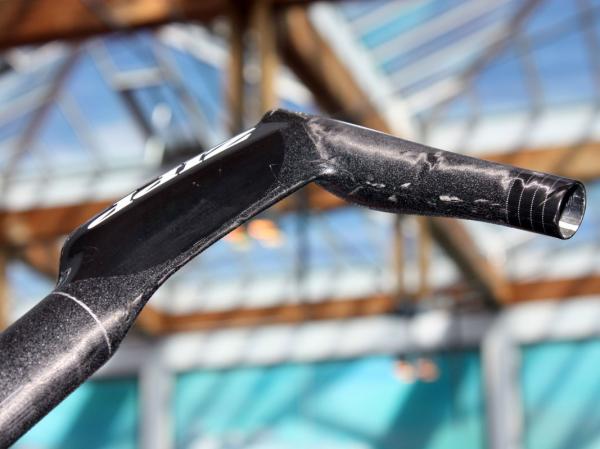
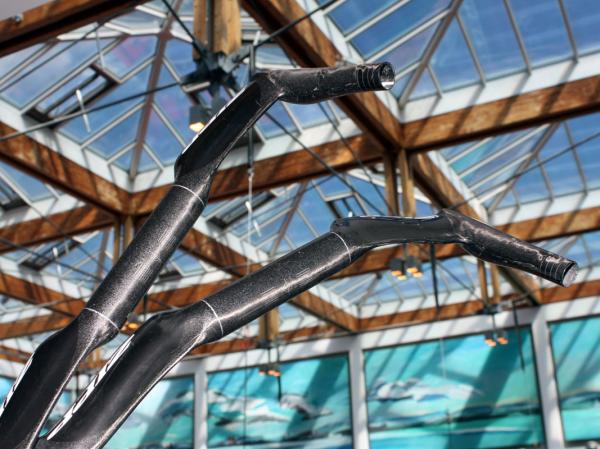
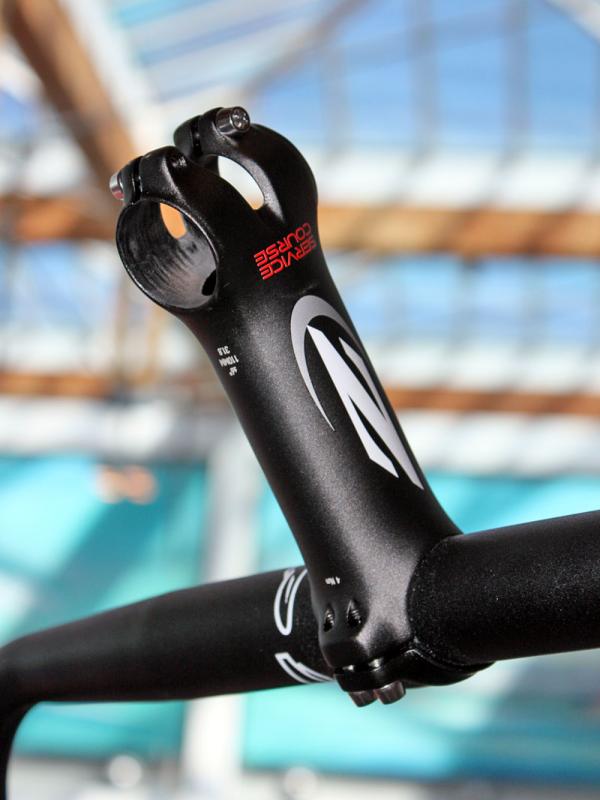
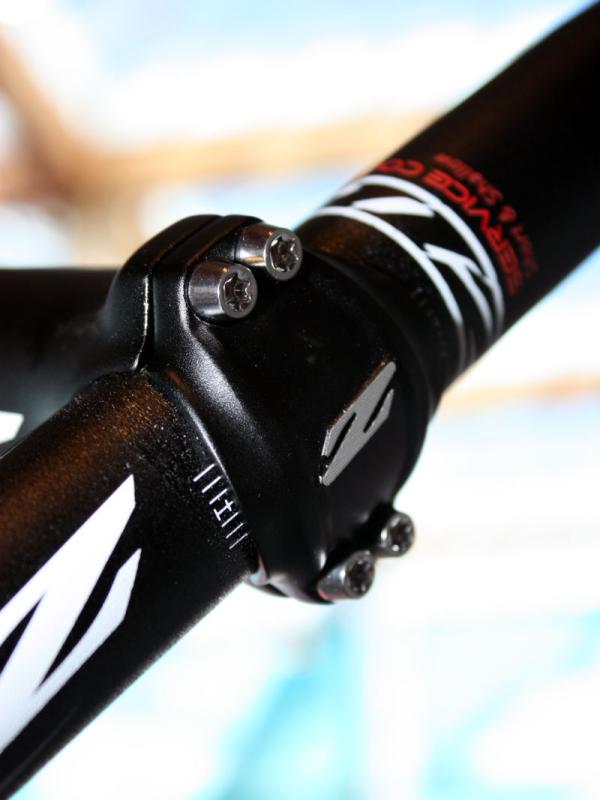
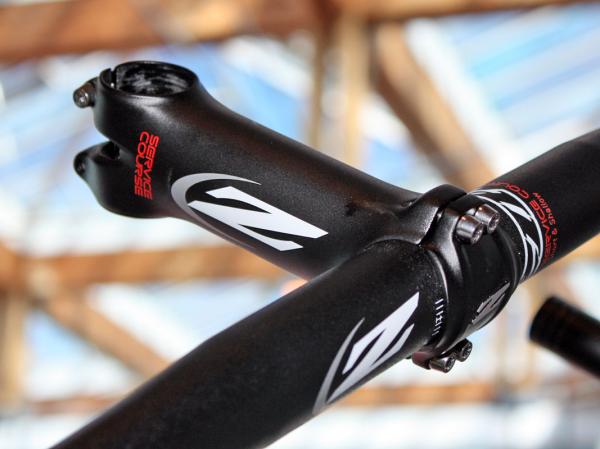
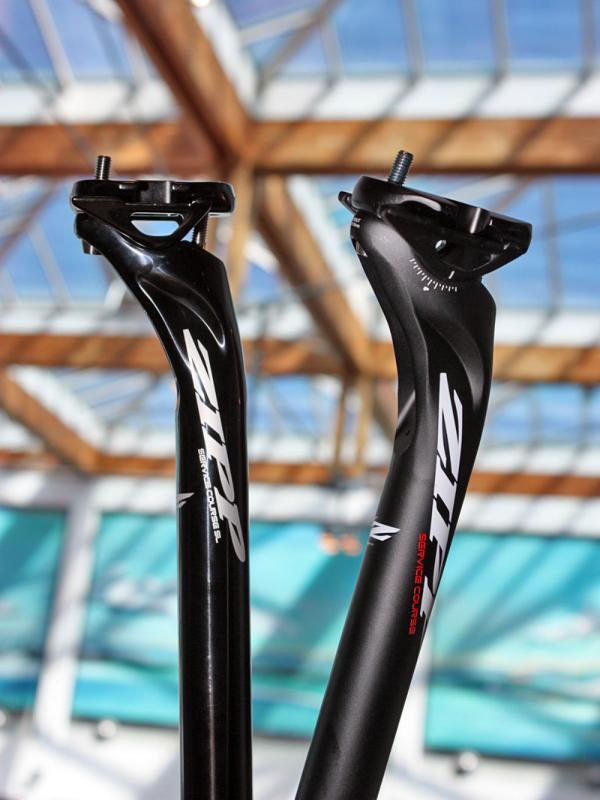
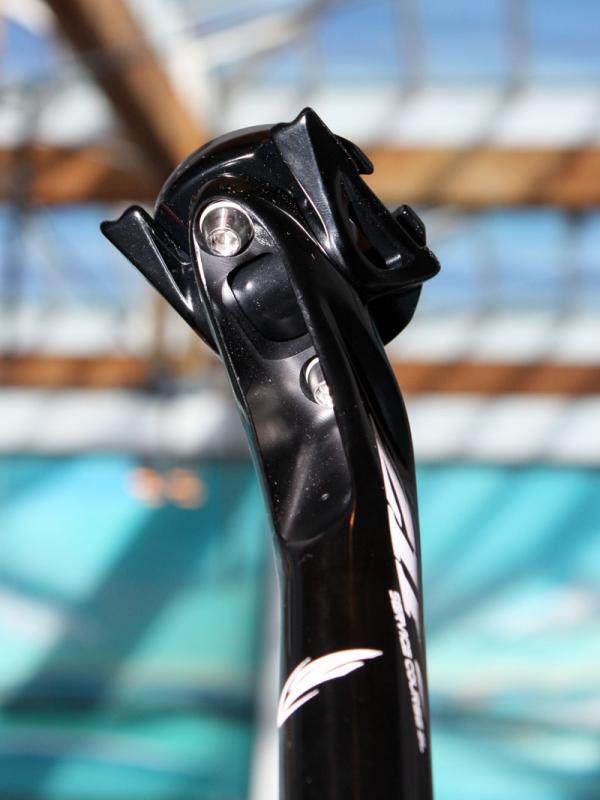
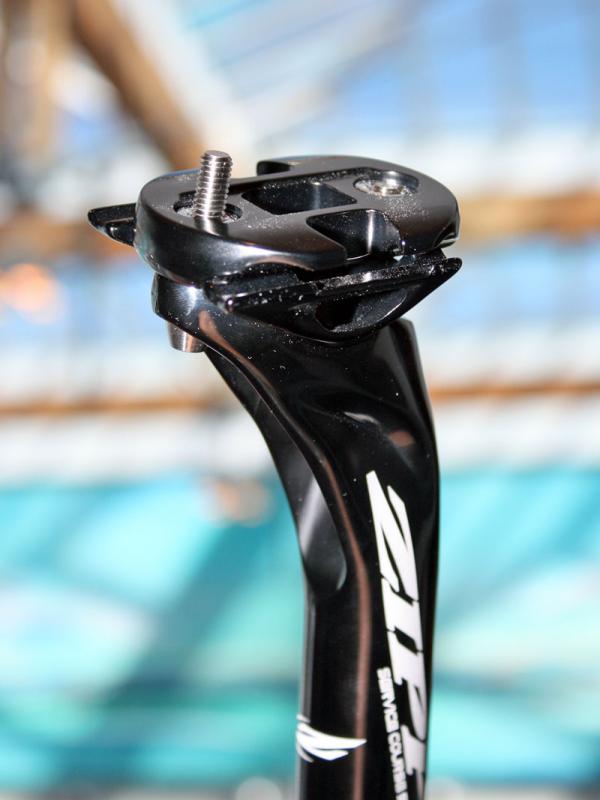
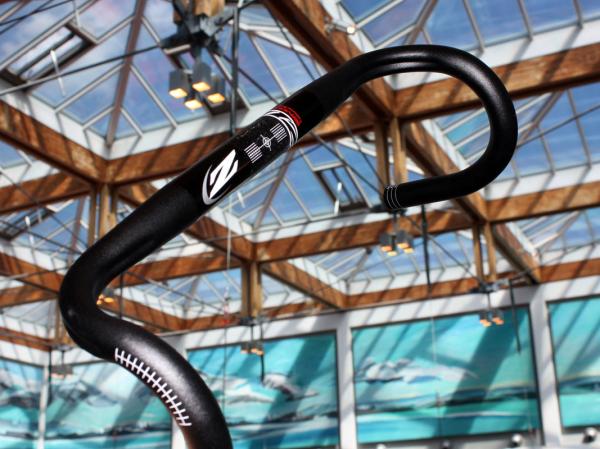
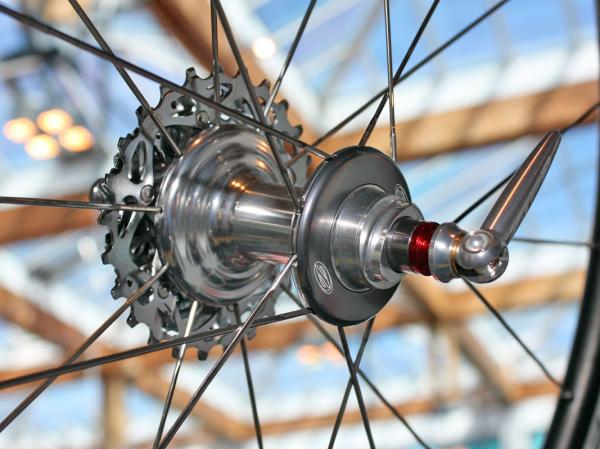
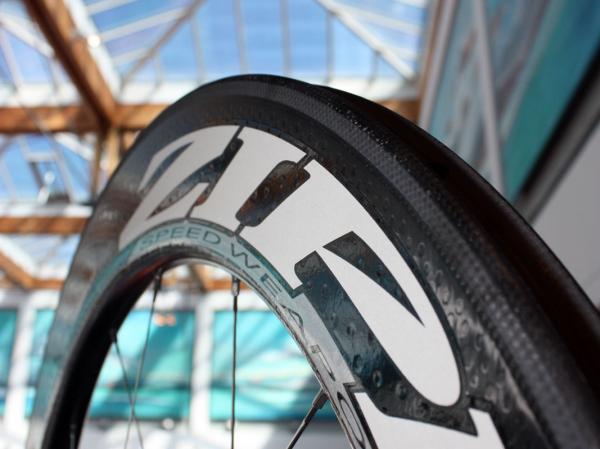
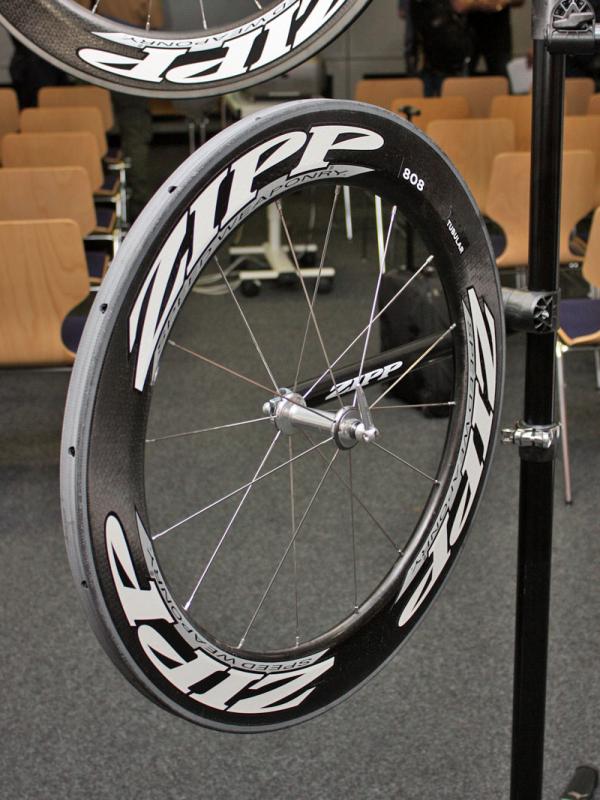
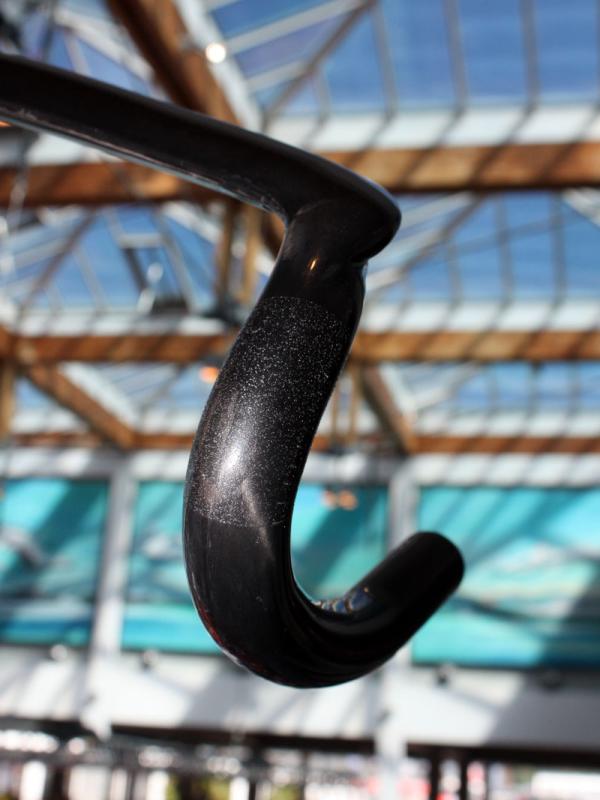
Zipp has expectedly translated the new Firecrest rim profile from its recently redesigned 404 over to the more speed-oriented 808 model, resulting in an all-new wheel that the company says is even faster than its own 1080 in most conditions, while also being easier to handle, stronger, and providing more consistent braking performance than the old 808.
The Firecrest profile is undoubtedly unusual looking with its very blunt nose, fat 27mm width, nearly straight sidewalls and a maximum width that occurs closer to the spoke end instead of the usual tire end of the cross-section. According to Zipp technical director Josh Poertner, the shape lends better aerodynamic performance when both the leading and trailing cross-sections of the rim are considered, especially at higher yaw angles that general consumers are more likely to see in everyday riding – supposedly yielding a 110-140g drag savings (or 12-15W depending on speed) over the old 808.
Interestingly, the new profile also supposedly yields far better handling characteristics in crosswinds. Poertner contends that the Firecrest shape actually serves to counteract crosswinds' tendency to push riders offline by creating a 'center of pressure' that falls behind the steering axis – in other words, wind to the rider's left will actually make the wheels want to drift right.
Moreover, tire bed profiles and heat resistant technology borrowed from the cobble-conquering 303 results in fewer flats when tubulars are used and cooler braking temperatures on long descents than before. Clincher rims use identical profiles now, too, and the wider section lends better sidewall support in hard cornering.
Claimed weight on the tubular 808s is 1,519g a set and 1,912g for the clinchers. Suggested retail prices are US$2,500 and US$2,950, respectively, and clinchers will begin shipping in October. Tubulars will follow in November.
Bars, stems and seatposts
Zipp is best known for its high-end carbon offerings but the 2011 model year will also see the introduction of a moderately priced range of aluminum bars, stems, and seatposts called Service Course.
Get The Leadout Newsletter
The latest race content, interviews, features, reviews and expert buying guides, direct to your inbox!
The Service Course and Service Course SL bars will be offered in Zipp's 'short and shallow' or traditional bends. Claimed weight on the standard 7000-series aluminum Service Course model is 280g while the proprietary ZTL-71 alloy yields a 20g savings for the SL version. Textured stem and lever clamp areas should help prevent slipping, too, and graduated markings on the drops – on the sides where they can actually be usefully referenced to the lever clamps! – help with initial setup.
The Service Course SL bar will cost just US$110; stepping down to the standard version will save you US$20.
Both the standard and SL-level Service Course stems will be made of forged and machined 7000-series aluminum and boast four-bolt faceplates and opposing-bolt steerer clamps while radius edges all around will prevent point stress on fragile carbon components. The 120g, US$110 SL will come with titanium Torx-head hardware and a relieved faceplate while stainless Torx bolts and a solid faceplate will bump weight on the standard US$70 version to 130g.
Rounding out the Service Course collection is a pair of seatposts, both using 20mm-offset twin-bolt heads with long lower cradles for good rail support and shorter upper cradles to maximize fore-aft adjustability. Zipp will offer just 27.2mm and 31.6mm diameters for now and lengths that range from 270mm to 350mm. Weights range from 220-270g with the lighter version costing US$120 and the standard Service Course seatpost fetching US$90.
Why the alloy bits at all, you might wonder? Zipp marketing manager Andy Paskins contends that it's by no means an effort by Zipp to move downstream but rather a way for the company to gain a foothold in the notoriously conservative (at least when it comes to bars and stems) in the elite pro ranks where aluminum is still king for more demanding races like the spring classics. By adding heavier – but tougher – alloy components to the range, Paskins says it'll be more likely that we'll eventually see Zipp carbon bars and stems on top team bikes.
Either way, consumers should start seeing Service Course bits in stores within a few weeks.
Zipp has also been busy with its bread-and-butter carbon handlebars.
The new VukaSprint uses similar drops to the Contour SL (albeit flared outwards by an additional degree) but a unique aero-profile and forward-swept top section to both reduce drag and provide more surface area to cut down on hand pressure. Claimed weight is just 210g and retail price is US$350. Expected delivery is late this year.
Finally, there are new VukaBull aero base bars with updated UCI-compliant cross-sections, wider clamp areas for a wider range of clip-on settings, and upwardly angled grip areas for a more secure handhold in starts and corners. Zipp will offer the VukaBull in both 0mm and 40mm drops, both in a 42cm width.
Suggested retail price on the VukaBull is US$250, claimed weight is just 200g, and expected delivery is this December.